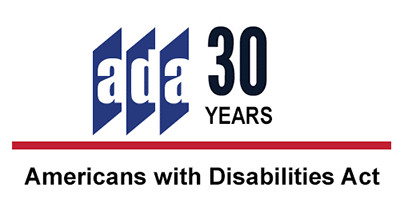ADA
The Americans with Disabilities Act (ADA) is a federal civil rights law that prohibits discrimination against people with disabilities in everyday activities. These activities may include accessing State and local government services, such as voting. They may also include activities in other public places, such as going shopping or eating at a local restaurant.
The ADA requires the Department of Justice to provide technical assistance to businesses, State and local governments, and individuals regarding the law. Click on the ADA Overview link above for a selection of technical assistance documents that provide an overview of these rights and responsibilities under the ADA and the Department’s implementing regulations.




